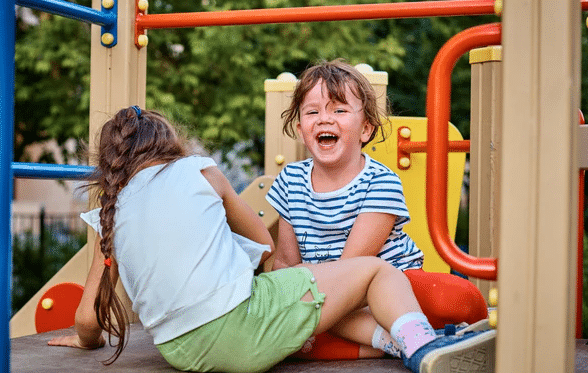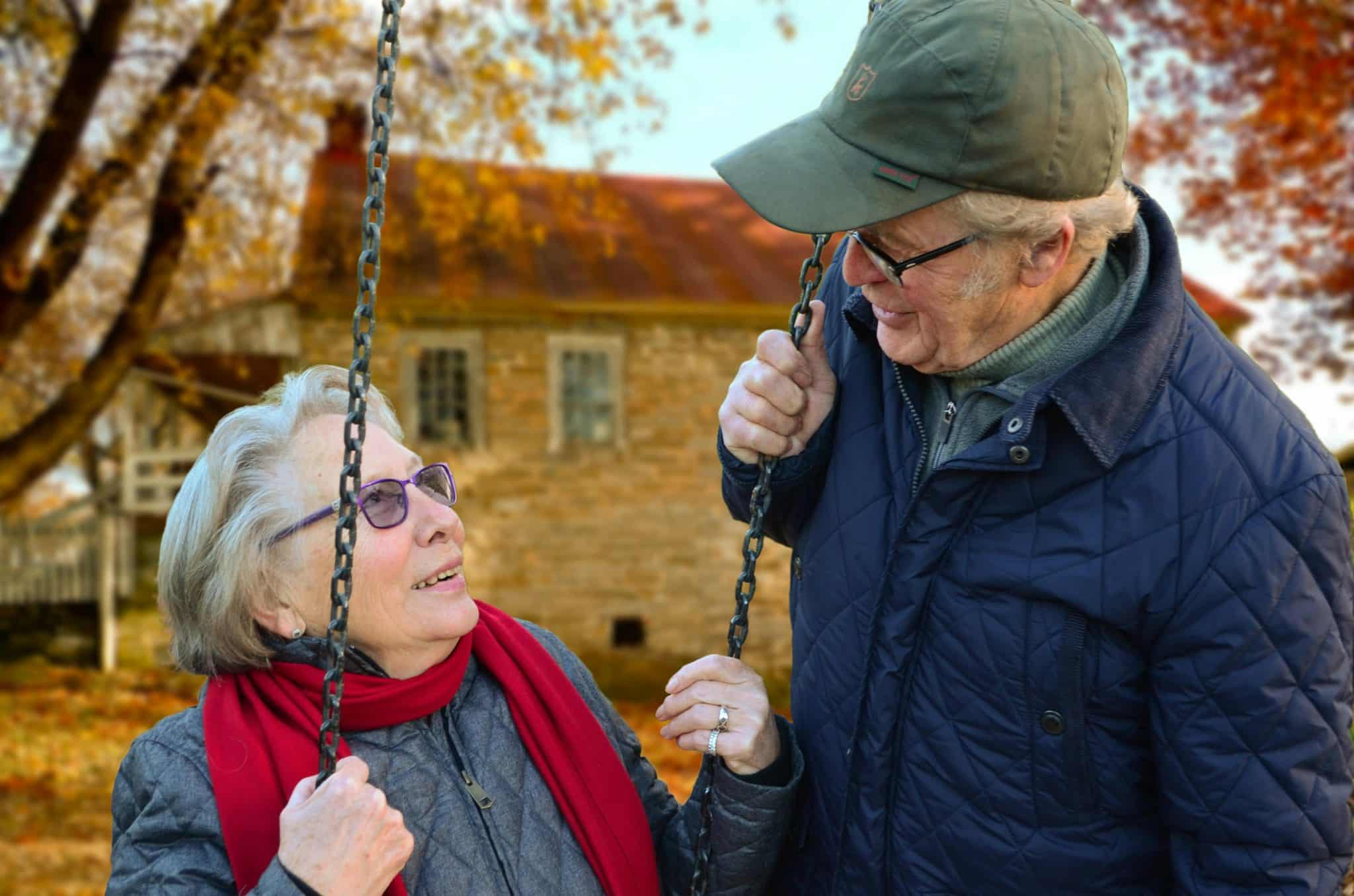Childhood trauma is not a difficult memory, as many may believe. Trauma can leave imprints that are so impactful that they shape physical and mental health for decades. Psychologists use the term Adverse Childhood Experiences (ACEs) to describe events like abuse, neglect, or growing up in unstable environments. When children endure these stresses repeatedly, the body shifts into toxic stress mode, keeping the nervous system on high alert.
Dr. Nadine Burke Harris brought global attention to this connection in her iconic TED Talk, showing how childhood trauma affects health across a lifetime. She showed the connection between early stress and chronic illness, mental health struggles, and even shorter life expectancy.
But what can an average person do with this knowledge? First and foremost, feel seen and not broken. Trauma is not an “effect” from the past; it’s a reason in the present. Recognizing its impact can help one learn how to break the cycle and begin healing.
How Childhood Trauma Affects Physical Health
In a study of 50 thousand American adults, it was shown that childhood trauma can be associated with poorer physical health in adulthood [1]. Stress in early childhood can increase the likelihood of the following illnesses:
- Diabetes
- Obesity
- Cardiovascular diseases
- Cancer
- Autoimmune diseases, etc.
How does it work? Toxic stress from early childhood influences the body in three ways: it changes brain structure, weakens immune defenses, and even changes the way DNA is expressed. A childhood trauma test can work if self-reflection or talking to close relatives doesn’t help detect the signs of ACEs. Although science knows a lot about ACEs’ signs, it’s still hard for the average person to realize whether their experiences were “normal.”
Altered Brain Structure and Function
Neuroscience research reveals that trauma can reshape the developing brain. The amygdala, which regulates fear, might become overactive, leading to heightened anxiety or hypervigilance. Meanwhile, the hippocampus, a brain part responsible for memory and learning, may shrink, making it harder to retain or process information. The prefrontal cortex, responsible for decision-making and emotional control, often shows reduced activity in trauma survivors, which explains difficulties with focus and impulse control.
As a result, three brain parts critical for decision-making and surviving in a modern world are underperforming. This can lead to a person making uninformed decisions in life, which may lead to worse consequences for physical health. For example, smoking or using drugs to get away from the pain these people may feel on a daily basis.
Adults with high ACE scores might report chronic worry, difficulty calming down after stress, or sudden emotional reactions that feel out of proportion. These patterns are learned biological responses shaped by early adversity. Over time, this altered brain function increases vulnerability to depression and other conditions that stem from disrupted neural pathways.
Immune and Hormonal System
One of the ways childhood trauma affects health across a lifetime is that it impacts the body’s response system. Medically, these systems are known as the immune and hormonal systems.
Children exposed to chronic stress might develop dysregulated cortisol patterns. Cortisol, the “stress hormone,” is meant to rise during threats and fall when the danger passes. However, with abnormal activity, the hormonal regulation of cortisol stays too high. It keeps the body in fight-or-flight mode, and constant stress is known to be detrimental to physical health.
Vice versa, dysregulation of cortisol can mean that it drops too low. This leaves the body unprepared for stress. For instance, if a stressful event occurs, the body of a person with ACEs may not respond immediately, but will have a delayed reaction [2]. The unexpected stress leaves a person confused, which will create even more health-related anxiety.
This imbalance impacts the immune system. Chronic inflammation, which underlies a wide range of health problems from autoimmune diseases to cardiovascular conditions, can be found frequently among those with ACEs. One study showed that people with 4+ ACEs are significantly more likely to have proteins in their livers that indicate the presence of inflammation in their bodies [3].
Hormonal imbalances generally influence growth, reproductive health, and metabolism. Issues like chronic fatigue, digestive problems, or irregular cycles are all linked to disrupted endocrine function. Over the years, this biological wear-and-tear, known as allostatic load, increases the likelihood of developing serious physical illnesses.
Different DNA Processing (Epigenetics)
One of the most groundbreaking findings in trauma research is that its effects reach all the way down to the genetic level. While trauma cannot change DNA itself, it can alter the way genes are expressed. The science that studies the expressions of DNA is known as epigenetics. This means that ACEs can leave chemical “marks” on genes that regulate stress and emotions.
Many epigenetic studies have been done on Holocaust survivors, as they are one of the biggest groups that survived severe trauma. Not only were the changes in stress regulation DNA detected in Holocaust survivors, but also in their offspring [4]. Although epigenetics is just an emerging biological science, it already makes groundbreaking suggestions that the legacy of trauma may be biologically passed down across generations.
On a personal level, this might look like heightened sensitivity to stress, a tendency toward anxiety, or physical conditions linked to inflammation. Even if individuals did not directly experience the original trauma. In families, it can explain why cycles of fear or emotional instability may persist unless they are consciously addressed.

Higher Risk of Heart Disease and Cancer
The CDC–Kaiser ACE study revealed that individuals with higher ACE scores were twice as likely to develop heart disease and more likely to die from cancer compared to those with no ACEs [5].
The reasons are biological and behavioral. Chronic stress from trauma keeps the body in fight-or-flight mode. Being in this state for a prolonged time elevates blood pressure and increases inflammation. People who experienced trauma are also more likely to adopt coping strategies such as smoking, overeating, or substance use, all of which further elevate the risk of heart disease and cancer.
The CDC indicates that up to 1.9 million heart disease cases can be a consequence of how childhood trauma affects health [6]. Similarly, childhood trauma is linked with higher rates of certain cancers. Not because trauma “causes” cancer directly, but because it disrupts immune function and encourages long-term behaviors that increase vulnerability.
This evidence underscores a critical point: childhood trauma is a public health issue. It may feel like a personal challenge, but its effects extend far beyond lifestyle and biology in ways that increase the likelihood of life-threatening illnesses later on.
How Childhood Trauma Affects Mental Health Across a Lifetime
The mental impact of childhood trauma is extensive and encompasses how people trust, attach to others, regulate emotions, and see themselves, often leading to various mental health disorders such as PTSD, ADHD, BPD, and bipolar disorder. They are not as visible as physical impacts, but can become factors that lead to more prominent physical manifestations of childhood trauma. Survivors of early adversity frequently carry patterns of insecurity, mistrust, and overwhelming emotions into adulthood.
Difficulties with Trust and Attachment
Attachment theory suggests that children learn about safety, love, and connection through their earliest environments (caregivers, teachers, siblings, friends, neighbourhoods, etc). When those factors are abusive, neglectful, or inconsistent, children are more likely to develop insecure attachment styles: anxious, avoidant, or disorganized.
In adulthood, this may show up as fear of intimacy and hyperdependence. For example, someone may constantly seek reassurance (“Do you still love me?”) or, on the opposite end, do not let others see their vulnerable selves. Eventually, this reinforces the thought that they are not as important, leading to neglect of personal care and poorer physical health.
Mental Health Disorders Are More Likely
Research from the Academic Pediatrics using a nationally representative sample of children found nearly all children (98.1%) had experienced at least one ACE, with an average of 3.6 ACEs per child. Each additional ACE increased the odds of mental health problems by 32% and chronic medical conditions by 21% [7]. This suggests that high ACE scores are linked to a higher likelihood of depression, anxiety disorders, PTSD, and even personality disorders.
Overwhelming Emotions
Another common impact of childhood trauma is emotional dysregulation. Due to changes in brain structure and the absence of a healthy example, survivors of childhood trauma may feel emotions more intensely and have difficulty calming down once upset. One way childhood trauma affects mental health across a lifetime is that stressful situations can trigger responses that seem out of proportion to the present. It happens because the body is reacting not only to the moment but also to similar negative experiences from the past.
This reduced stress resistance makes daily life more exhausting. A minor disagreement with a coworker, for instance, may cause hours of anxiety or self-doubt.
Lower Self-Esteem and Emptiness
Perhaps one of the most profound effects of childhood trauma is the belief of being “unworthy.” Adults who grew up in environments where their needs were dismissed or punished might internalize the message that they don’t deserve love or success.
How lower self-esteem triggered by ACEs might show up in adulthood
- Chronic self-criticism
- Prioritizing others’ needs over their own
- Choosing unfulfilling jobs and relationships because they feel they can’t do better
- Substance use as a way to numb feelings and emptiness
- Feeling stuck and empty, as if life is meaningless

How to Stop Childhood Trauma from Affecting Health in Adulthood
The impact of childhood trauma may feel permanent, and it probably will. It doesn’t mean, though, that people who experienced ACEs cannot live a happy and fulfilling life. While people cannot erase the past, they can learn to understand, manage, and soften its influence on daily life. Here’s one action plan to follow:
- Get tested and learn about yourself. Awareness is huge. Not many people have vibrant memories from their childhood, especially if said childhood was traumatic. That’s why some may underestimate how much their childhood experiences still shape their behavior. A structured tool like a childhood trauma test can help identify areas where the past may still influence the present. Tests don’t diagnose but provide clarity, making it easier to seek the right kind of help.
- Reflect on the past. Understanding what happened can make sense of current struggles. For some, talking with family members about past experiences can provide missing context or even validation. However, this is not always safe or possible, and survivors should never feel pressured. Also, if people feel unsafe bringing up traumatic memories, it’s better to do it with a mental health professional.
- Accept that the harm is done and focus on now. Acceptance is important as it’s the first step to starting hard work on yourself. Try not to condone what happened to you, but try to acknowledge reality. Dwelling on “what could have been” fuels guilt and anger. With that being said, it’s okay to feel angry, but it shouldn’t turn into a default feeling.
- Consider Therapy. Professional support is one of the most effective tools for recovery. The most common practices used in work with ACES are the following:
- CBT (Cognitive Behavioral Therapy) helps reframe distorted thinking patterns.
- Trauma-focused therapy & EMDR (Eye Movement Desensitization and Reprocessing) directly address traumatic memories stored in the body.
- Schema therapy targets deep-rooted beliefs like unworthiness or abandonment.
- Build Support Systems. Healing is easier when not done alone. Trusted friends, support groups, and online communities provide understanding and validation. Sharing experiences reduces isolation and fosters resilience. It also makes people feel important and needed, which in turn increases self-care and, eventually, general health. Equally important is creating healthy boundaries with those who continue harmful patterns. Sometimes support also means limiting contact.
Sources:
- Long Term Physical Health Consequences of Adverse Childhood Experiences. Sociological Quarterly. October 2015. https://pmc.ncbi.nlm.nih.gov/articles/PMC4617302/#S22
- Childhood Trauma Is Nominally Associated With Elevated Cortisol Metabolism in Severe Mental Disorder. Frontiers in Psychiatry. May 2020. https://pmc.ncbi.nlm.nih.gov/articles/PMC7247816/
- Adverse childhood experiences and adult inflammation: Single adversity, cumulative risk and latent class approaches. Brain, Behavior, and Immunity. July 2020. https://pmc.ncbi.nlm.nih.gov/articles/PMC7327510/#ab005
- Study finds epigenetic changes in children of Holocaust survivors. U.S. Department of Veterans Affairs. October 2016. https://www.research.va.gov/currents/1016-3.cfm
- About the CDC-Kaiser ACE Study. CDC. April 2021. https://www.cdc.gov/violenceprevention/aces/about.html
- About Adverse Childhood Experiences. CDC. October 2024. https://www.cdc.gov/aces/about/index.html
- Adverse childhood experiences and mental health, chronic medical conditions, and development in young children. Academic Pediatrics. September 2016. https://pmc.ncbi.nlm.nih.gov/articles/PMC4562867/






































